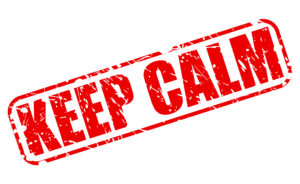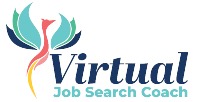You’ve been called for an interview – it’s tomorrow or the next day and you have little time to practice or prepare. You’re excited and terrified at the same time. What are you going to do?
In this article, I’m going to give you my Interview Emergency Preparedness Kit with 4 items to help you succeed in your last-minute interview.
One of my favourite mottos when it comes to job search and interview success is 75% preparation and 25% execution. Through all the strategies and techniques, I give you, you’ve also heard me say “practice, practice, practice”. However, I also understand that sometimes you’re just starting out in your job search, you send out one resume and within hours you get invited for an interview 2 days later. Woohoo! Now your thinking oh no, I’ve read some of these blogs/watched some of Stacey’s YouTube videos, but I haven’t had time to practice any of it yet! What am I going to do?
Don’t pan ic – I’ve created my interview emergency preparedness kit with some of my best tips to help you through. When you’re in a pinch my interview emergency preparedness kit will supply you with the essentials.
ic – I’ve created my interview emergency preparedness kit with some of my best tips to help you through. When you’re in a pinch my interview emergency preparedness kit will supply you with the essentials.
My Interview Emergency Preparedness kit contains 4 items which I’ll teach you today: 1) The 3 main styles of interviews to be prepared for, 2) My “About Me” checklist, 3) My Job Information worksheet, and 4) Some Questions to Ask.
My Dad taught me to always be prepared for an emergency or the unexpected and from the time I could drive, he got me to carry a backpack with a spare set of clothes, runners, food, water, and a few other necessities because I grew up in Vancouver, British Columbia where we were always warned to be prepared for a potential magnitude 10 earthquake. Thankfully “the big one” never happened during my time living there but I’ve carried that prepper mentality throughout my life and I can tell you some stories of where my emergency preparedness kit has saved me in some unexpected situations.
As a Career Coach and Interview Specialist, I get numerous calls from excited and panicked people wanting last-minute interview coaching. I’ll admit I cringe a little because preparing for an interview a day or 2 before, is like studying for a final exam the night before or running a 5K race without training. You aren’t going to do as well as you would if you had studied or trained for weeks prior which is why I so emphatically encourage job seekers to seek coaching support at the start or even before you start their job search. However, despite the short notice, there are some things you can do even at the last minute to help you perform well and outshine your competition (many of whom I can tell you from experience haven’t practiced at all and are just winging it).
So, with my Interview Emergency Preparedness Kit you will still be ahead. So, let’s dive in!
PART 1 – Knowing Styles of Interviews to Be Prepared For:
Alright, so there are several different types of interviews –each type falls in one of 3 main styles, Unstructured, semi-structured, or structured.
Unstructured Interviews – This type of interview has no specific direction or pattern of questioning instead it consists of free-flowing conversation. They are often more social in nature and put more emphasis on what people like to do rather than on extracting evidence of what they can do. The interviewers rarely take notes, preferring to observe candidates when responding. The duration will be spent trying to get to know you or talking about what the interviewer knows best – themselves and the company.
Unstructured Interviews are most often carried out by interviewers who have never received professional interview training. To increase your chances, aim to establish rapport by finding some common ground – pick a topic with which you are both familiar and remember to smile! I want you to mentally assess the degree to which you’ve been able to express your skills and abilities. Don’t leave the interview without ensuring you’ve taken an opportunity to convey them or summarize how you see the fit between you, the role, and the team.
Semi-Structured Interviews – A semi-structured interview usually contains questions that focus on what you have done in the past (often behavioural style questions) and how you could help the company in the future, rather than on personality or general areas of interest. Similar questions will be asked to all candidates. Most likely notes will be taken, or a scoring system is used to compare answers with other candidates.
Structured Interviews – This type of interview is designed mainly to save time and allow consensus among decision-makers. Often the human resources professional will take the role of moderator and keep the flow going – they may ask all or only some of the questions. Department heads and colleagues will focus on the skills and abilities with colleagues also focusing on personality.
Regardless of whether it’s an Unstructured, Semi-Structured, or Structured style, interviewers are looking for the same things – your credibility (is the information you are providing congruent with what you have on your resume? Do you know yourself? and will you fit this company?).
PART 2 – Complete the Following “About Me” Checklist:

This is what I want you to make sure you know about yourself to be prepared to speak about:
- Do I know all the job titles and dates of my employment history?
- Can I recall all the education, training, and certification I have obtained?
- Can I identify my principal strengths and what I can contribute to the objectives of this role/team?
- Do I know my ‘occupational highlights’ (accomplishments)?
- Do I have a specific example ready for each highlight?
- Do I know how to describe elements of my skills as they relate to role?
- Do I know which of my references can point out relevant strengths or unique abilities.
Make sure you can check each of those off – any you can’t check off are the areas you need to focus on right now.
PART 3 – Job Information Worksheet:
Take a few minutes to think about and answer each of these questions in relation to the specific job you are being interviewed for:
- Job Title?
- What are the most important tasks of this job?
- What strengths are required to do this job?
- What is the most challenging aspect of the job?
- What can I bring to this job?
- What is a reasonable salary to expect for this job? (check out Salary.com or Payscale.com for estimates)
- What are negotiable elements?
PART 4 – Questions to Ask:
This is an area where most candidates disappoint – at the end of the interview they are asked if they have any questions and 90% of people say no, I think you’ve covered everything. REALLY – there are hundreds of questions you can ask about a job or a company and you can’t come up with even a couple to ask? So here are a few ideas to keep in your back pocket.
It’s great to ask questions that demonstrate enthusiasm, such as:
- What is the first problem that needs attention?
- Who would I be working with? Working for? Would it be possible to meet them?

- What qualities does a successful person need to have at this company?
- What are the training policies or onboarding process?
- What do you appreciate most about working for ABC company?
Questions that generate interest:
- Why is this position available?
- What do YOU like about working for this company?
- How would you describe the corporate culture?
- How would you describe the supervisor’s style of management?
- Do you have plans for expansion?
Closing Questions:
- When can I expect to hear back from you regarding my application for this position?
- Is there any additional information you require?
It is important to have a Closing Statement prepared to finish off your interview – something like this:
“It was great to have this opportunity to meet with you and present my skills. I hope I’ve answered the questions well and that we will have a chance to work together in the future.”
What you’ve learned here is just the tip of the iceberg when it comes to job search strategies and interview tips. To learn more, check out my YouTube channel (VirtualJobSearchCoach), where I post new content to help job seekers like you, determine, pursue, and land their dream job!
If you would like one-to-one coaching to equip you with the confidence, necessary tools, critical knowledge, and strategies to find and land your ideal job – then let’s talk! You can book a complimentary 15 minute discover call directly in my calendar at https://calendly.com/virtualstacey and let’s chat about how I can help you fast-track your job search success.


